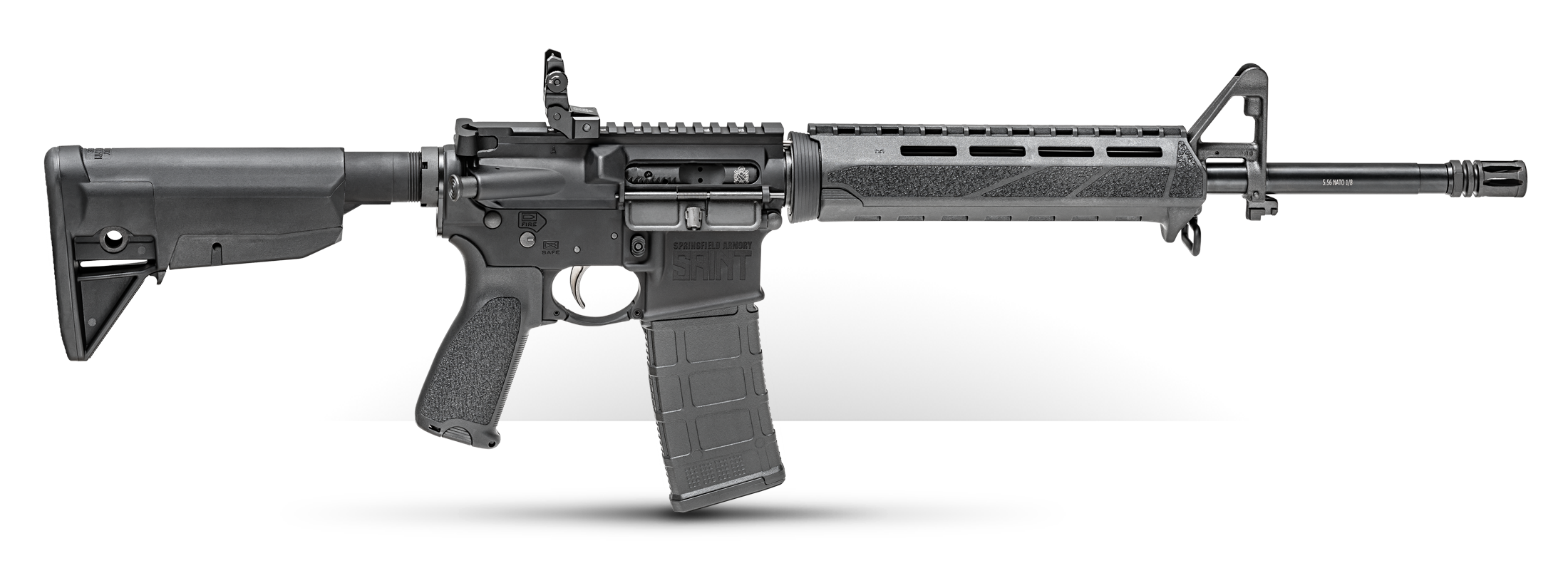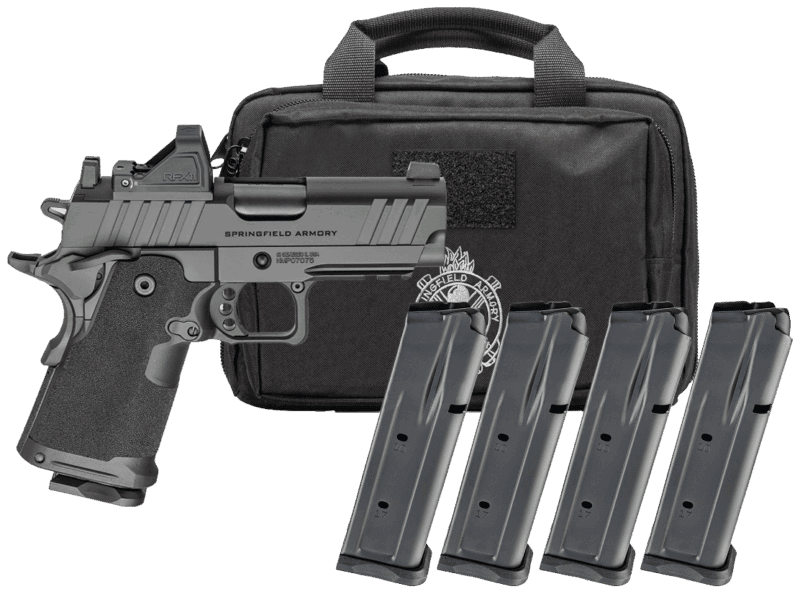Editor’s Note: The statements in this piece are the author’s opinion and do not constitute legal advice. Get adequate self-defense training and familiarize yourself with your local laws.
Most of us who practice preparedness often ponder what would happen in the event of an armed intruder breaking into our residence. This includes questions like “where I will be when it happens,” “what time of day will it be,” and maybe even “what will I be wearing”? Fighting an intruder while you are barefoot and in your boxer shorts isn’t really that unrealistic.
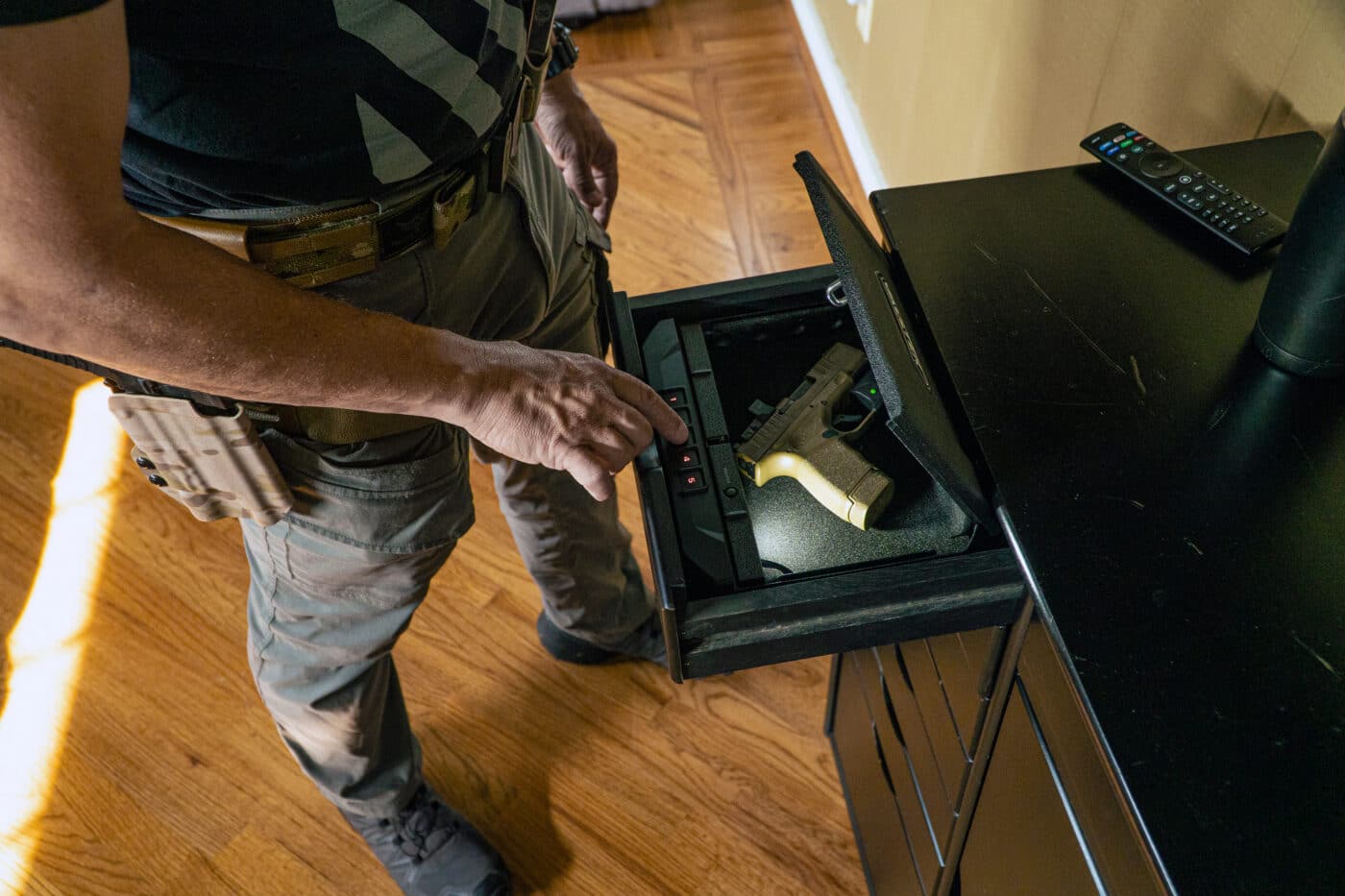
There are tons of things to consider in the pursuit of preparedness but a ground-level simple one is where you should store your defensive firearm and how you might want to store it.
Many Choices
I think it’s important to keep your personal protection gun loaded, and in a locked system to keep it out of unauthorized hands. Trying to load your magazines under stress can be a real challenge. If you think you have fat fingers now, just wait until bullets are whizzing by.
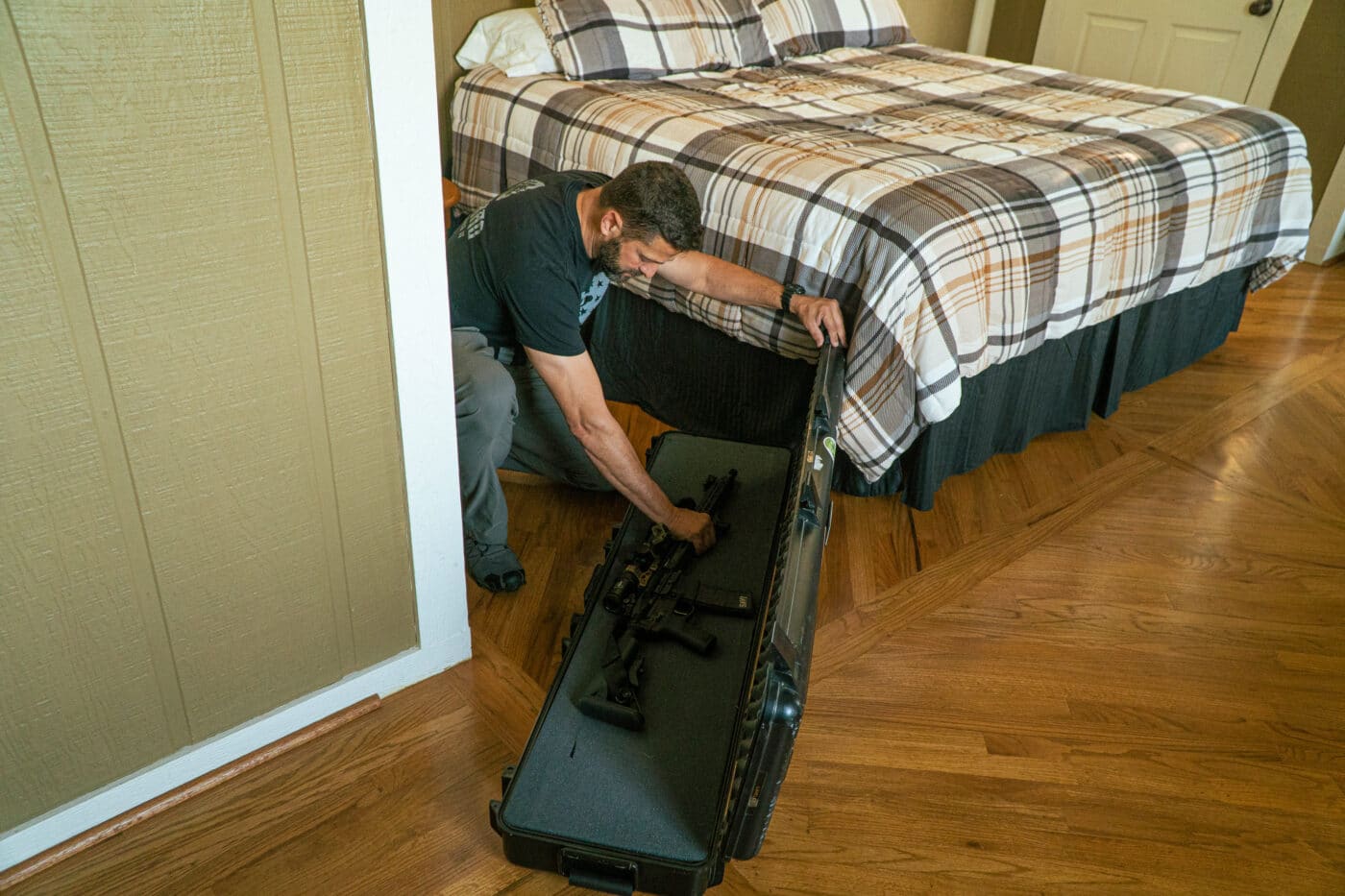
I recommend you store your gun with loaded magazines, with one in the chamber. Keeping one in the chamber means it’s ready to go, and having a loaded magazine means your gun is ready for action. This brings up the next question: How should you store it?
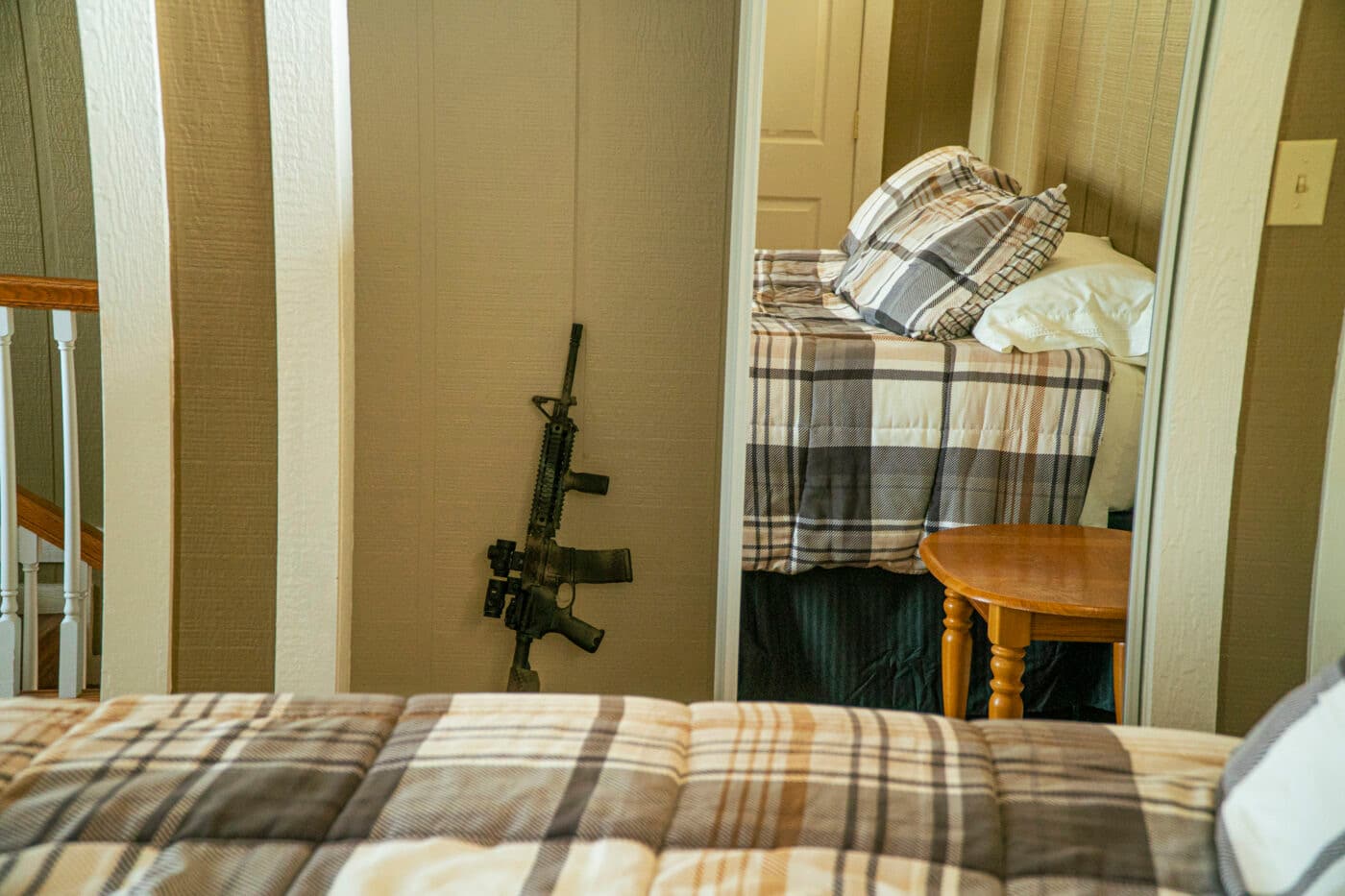
I will now focus on how it should be stored. You need to have your guns locked up, but quickly accessible to authorized users. It’s that simple.
Methodology
The top method of home defense gun storage is a dedicated safe. Hands down this is the best way to store a gun. Safes come in various shapes and sizes, so don’t think that means you have to buy a $3,200 dollar safe that holds 48 guns. If you’re the type of gun owner who just wants one gun to defend your family and no more, then you can get a safe to just fit that gun.
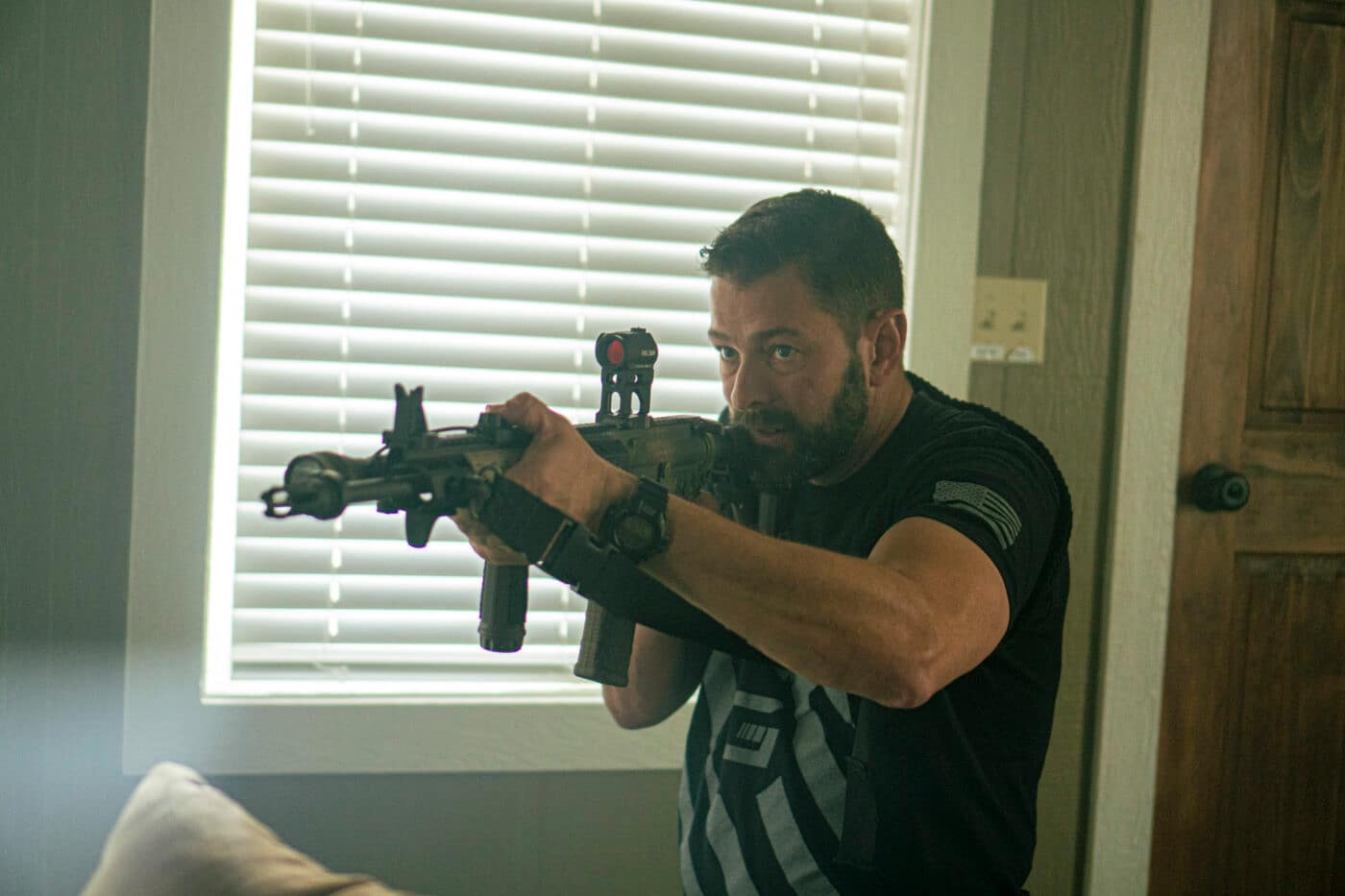
So, you could get a flat handgun safe, a standing cabinet safe, or a footlocker type-safe like a lockable Pelican case. Using a cable lock that runs through the action of your gun is not my recommended way to for securing a firearm.
Remember that some of these smaller safes will not prevent your firearm from being stolen. Just choose wisely which safe you need and where to keep it. So what is the next question I have to ask? It is, where should I keep my defensive weapon?
Location, Location, Location
Ask yourself, “when I’m the house, where am I at the most?” If an intruder breaks in, where would they enter at and would they be closer to my guns than me? For most of us, the quick answer is going to be to keep them in our bedroom.
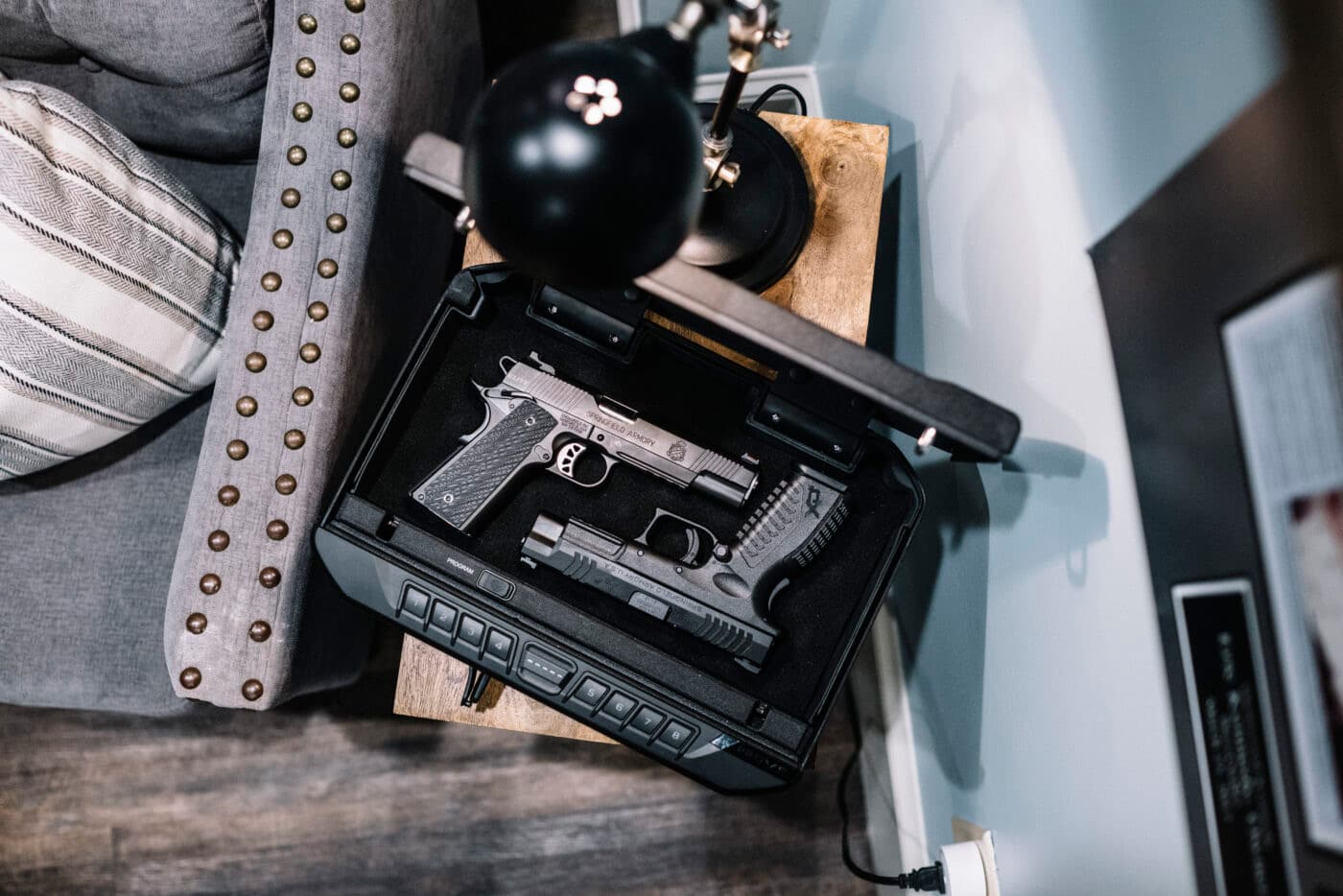
But, you might want the bulk of your guns in a centrally located room and a separate safe for immediate access to a defensive rifle in the middle of the night. Good places to store gun safes, depending on size, can be in a bedroom closet. For smaller pistol safes, it may be good inside a dresser drawer. If you can store your safe out of immediate sight, that means it might escape the view of a burglar looking for valuables to steal.
Conclusion
Every decision you make when storing your gun has a pro and a con. Guns hidden from sight are slower to get to, while guns not locked up may fall into unauthorized hands. These things take careful consideration, but there is one that is non-negotiable. That is having guns locked up when they are stored. So, find the perfect safe for you and begin plotting out what room in your house is best for you to keep it.
Editor’s Note: Please be sure to check out The Armory Life Forum, where you can comment about our daily articles, as well as just talk guns and gear. Click the “Go To Forum Thread” link below to jump in!
Join the Discussion
Featured in this video
Continue Reading
Did you enjoy this video?

 147
147




